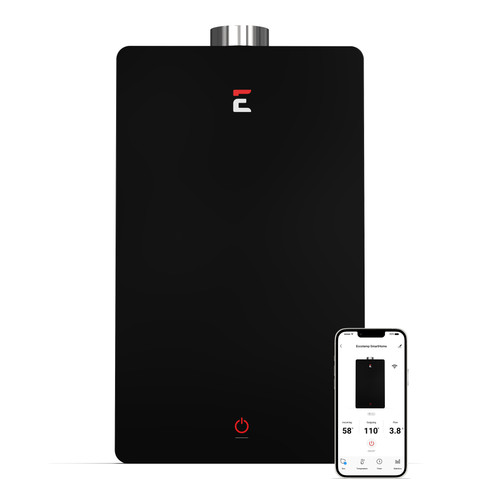
When it comes to choosing a water heater for your home, tankless water heaters are becoming increasingly popular due to their energy efficiency and space-saving design. With so many options available on the market, finding the best tankless water heater for your home can be a daunting task.
If you want to buy a Tankless Water Heater online then you may browse this website. In this article, we will discuss the key factors to consider when selecting a tankless water heater to ensure you make the right choice for your household needs.
Energy Efficiency
Why Energy Efficiency Matters
One of the main advantages of tankless water heaters is their energy efficiency compared to traditional tank water heaters. By heating water only when it is needed, tankless water heaters can help reduce energy consumption and lower utility bills.
Factors to Consider for Energy Efficiency
- Energy Star Certification: Look for tankless water heaters that are Energy Star certified to ensure they meet strict energy efficiency guidelines.
- Energy Factor (EF) Rating: Consider the Energy Factor (EF) rating of the water heater, which indicates how efficiently it uses energy. A higher EF rating means better energy efficiency.
- Size of the Unit: Choose a tankless water heater that is appropriately sized for your household's hot water needs to avoid energy waste.
Flow Rate
Understanding Flow Rate
Flow rate refers to the amount of hot water the tankless water heater can produce per minute, measured in gallons per minute (GPM). It is essential to consider the flow rate of a tankless water heater to ensure it can meet your household's hot water demands.
Determining the Right Flow Rate
- Estimate Your Hot Water Needs: Calculate the peak hot water usage in your home to determine the minimum flow rate required for the tankless water heater.
- Consider the Number of Fixtures: The number of fixtures in your home, such as showers, sinks, and appliances, will impact the required flow rate of the water heater.
- Consult a Professional: If you are unsure about the flow rate needed for your household, consult a plumbing professional for guidance.
Installation Requirements
Installation Considerations
Before purchasing a tankless water heater, it is essential to consider the installation requirements to ensure compatibility with your home's plumbing system and electrical setup.
Key Installation Factors
- Electrical Capacity: Determine if your home has the electrical capacity to support a tankless water heater, which may require a dedicated electrical circuit.
- Ventilation Needs: Tankless water heaters may require proper ventilation to ensure safe operation, so consider the ventilation requirements before installation.
- Plumbing Compatibility: Check if your home's plumbing system is compatible with a tankless water heater and assess any modifications needed for installation.
Cost Considerations
Initial Cost vs. Long-Term Savings
While tankless water heaters may have a higher upfront cost compared to traditional tank water heaters, they can provide long-term savings through energy efficiency and lower operating costs.
Factors Affecting Cost
- Initial Purchase Price: Compare the initial purchase price of different tankless water heater models to find one that fits your budget.
- Installation Costs: Consider the installation costs associated with a tankless water heater, including any additional plumbing or electrical work required.
- Long-Term Savings: Calculate the potential long-term savings on energy bills to determine the overall cost-effectiveness of a tankless water heater.
Warranty and Reliability
Importance of Warranty Coverage
When selecting a tankless water heater, it is essential to consider the warranty coverage and the manufacturer's reputation for reliability to ensure peace of mind and protection against potential issues.
Factors to Assess for Reliability
- Warranty Length: Look for tankless water heaters with a generous warranty period to cover any potential defects or malfunctions.
- Manufacturer Reputation: Research the manufacturer's reputation for product quality and customer service to assess reliability.
- Customer Reviews: Read customer reviews and feedback on different tankless water heater models to gauge satisfaction and reliability.
Conclusion
Choosing the best tankless water heater for your home involves considering factors such as energy efficiency, flow rate, installation requirements, cost considerations, and warranty coverage. By evaluating these key factors and selecting a tankless water heater that meets your household's hot water needs, you can enjoy the benefits of energy-efficient and reliable hot water supply for years to come.
